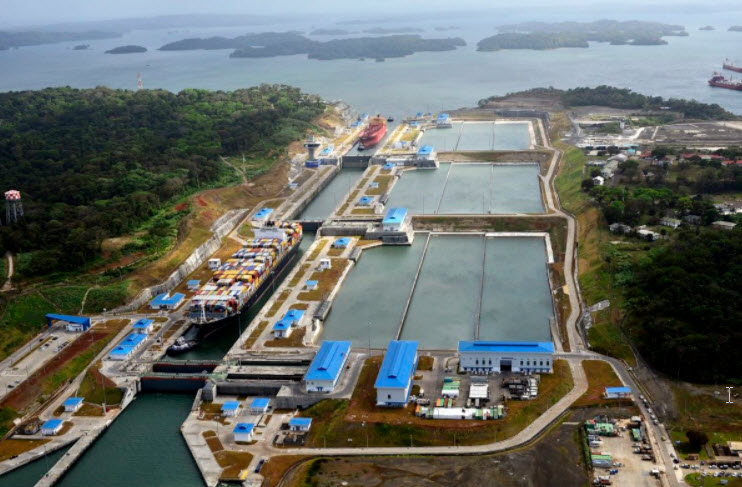Panama is a country on the move. The completion of the new set of locks has been part of a much larger transformation.
Long known as an important transit corridor, it is now becoming a vital logistics hub. The construction of the new airport terminal will not only modernize the old structure, it will greatly enhance the capacity of the airport. This will make Panama one of the most important airport hubs covering Central America, South America and the Caribbean.
New clusters of warehouse facilities have been built close to the airport to facilitate the logistics process. Likewise, the City of Panama is brimming with new hotels and tourist facilities to accommodate the tourism business that is starting to arrive. The only problem the country faces is that it is finding itself short of the necessary skilled labour.
New labour laws, visa restrictions on Venezuelans and a poor education system are crimping the supply of skilled labour. This is creating social tensions as poor, unskilled workers, many of them displaced due to the completion of the new canal, are unable to find work.
Fortunately, the new Cobre Panama mine which will soon begin operations, will absorb much of the excess unskilled labour.
The US$5.5-billion mine, which was developed by Canada’s First Quantum Minerals, sits 120 kilometres from Panama City and only 20 kilometres from the Caribbean coast. It was started in 2013 and covers 13,600 hectares. It is expected to be fully operational by 2019, and it will produce 320,000 tons of copper every year.
The facility will boost Panama’s exports by US$2 billion a year, and it will significantly boost the level of economic activity. This comes at a crucial moment, given that the economy has begun to lose steam after the completion of the canal. During the first half of the year, the economy expanded 5.8 per cent y/y.
Although this makes the country one of the fastest-growing economies in Latin America, it is still way down from the rates that were experienced while the construction was under way. The inauguration of the mine is also an important development for the economy, since it allows it to diversify away from its reliance on services. It will be a fundamental aspect of the overall transformation process.
Another important shift is on the diplomatic front. The Panamanian government recently decided to recognise the People’s Republic of China, breaking off relations with Taiwan. Not only is the move a major diplomatic coup for Beijing in isolating Taiwan, it is part of an overall strategy to deepen its presence in Latin America.
China has displaced Europe as the region’s second-largest trading partner, and it is now the main trading partner for many of the largest economies in Latin America. Panama is a vital choke point, and China aims to increase its presence by investing heavily in infrastructure and logistics facilities.
In July, China Harbour Engineering Company was awarded a US$166-million contract, along with a Belgium partner, to develop the Amador Cruise Terminal on the Pacific side of the canal. China has been one of the main beneficiaries of the expansion of the canal, allowing Post-Panamax ships to significantly reduce the long transit time from Chinese ports to the Atlantic basin.
Deep-water ports along the Atlantic, from Halifax to Buenos Aires, have been making preparations to receive the mega-vessels. The Port Authority of New York and New Jersey spent US$1.6 billion in raising the Bayonne Bridge by 64 feet to accommodate the cargo ships.
This is having a major impact on the United States economy, as shippers are eschewing the West Coast ports, and taking their products directly to the East Coast, thus reducing shipping costs and times. With closer ties with Panama, China can tighten its economic and political grip on Latin America.
Last of all, the country is undergoing a major political transformation. The Odebrecht scandal has had an enormous impact on the political scene. A dozen ministers, under former President Ricardo Martinelli, are in jail, with two of them arrested in early September.
Martinelli himself is in jail in Miami, under charges of embezzlement and political espionage. He is expected to be extradited to Panama before the end of the year. In a country which was known for rampant corruption, the winds have permanently changed. Moreover, the Panama papers have had an important impact on the way business is done.
All of these factors are transforming Panama from a sleepy Central American country to a more serious economic player on the international scene.
– Dr Walter T. Molano is a managing partner and the head of research at BCP Securities LLC.
